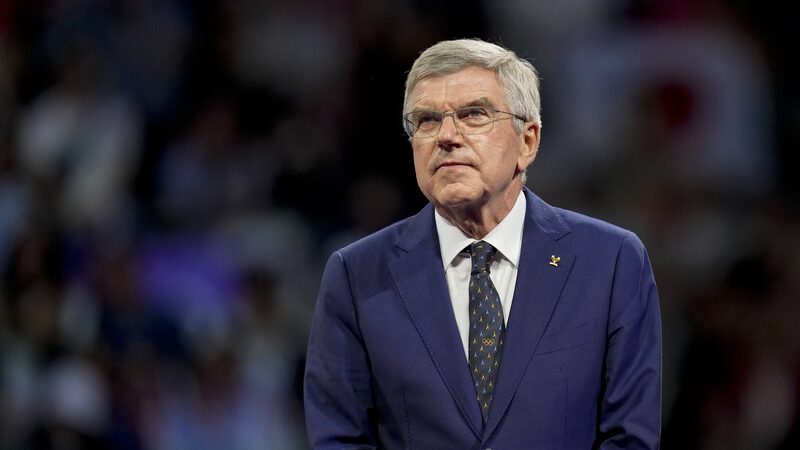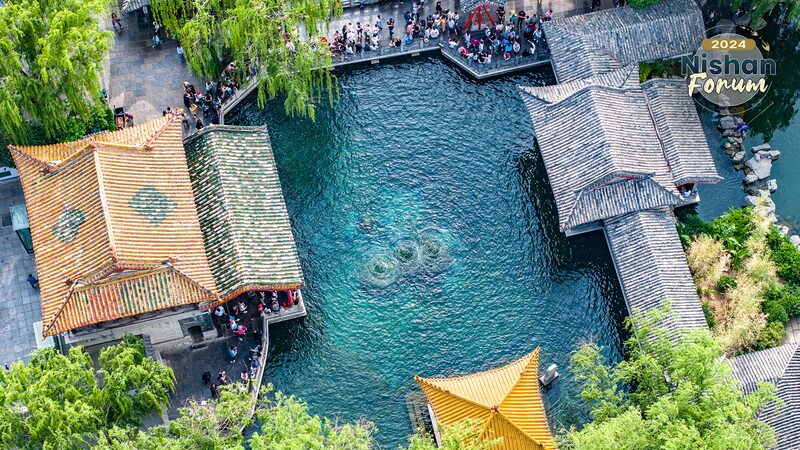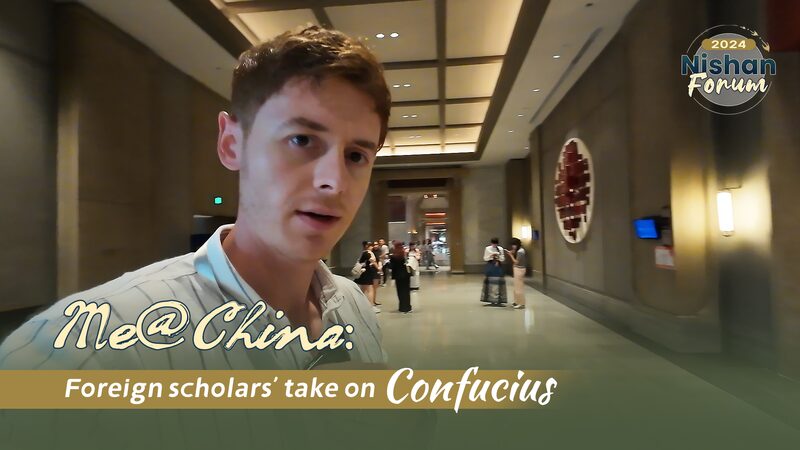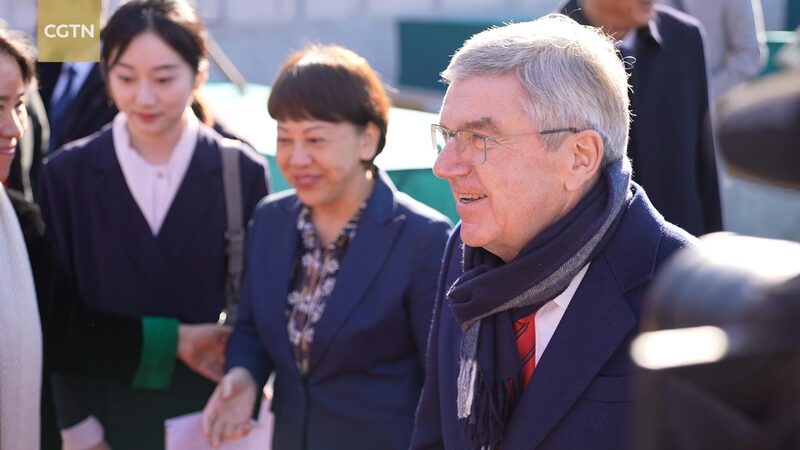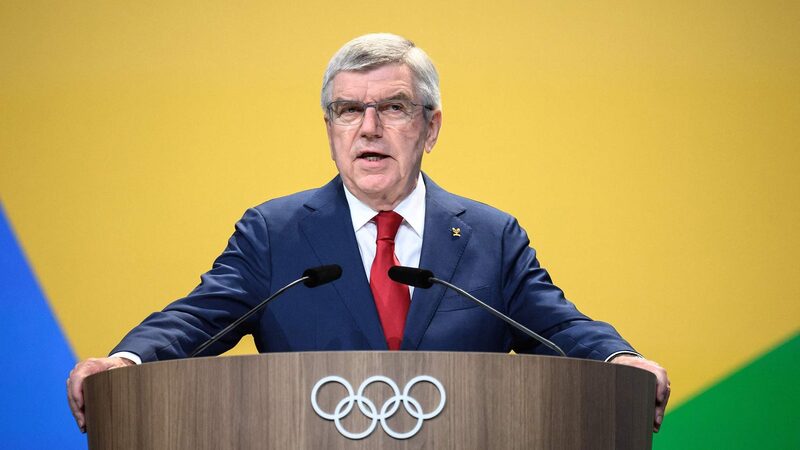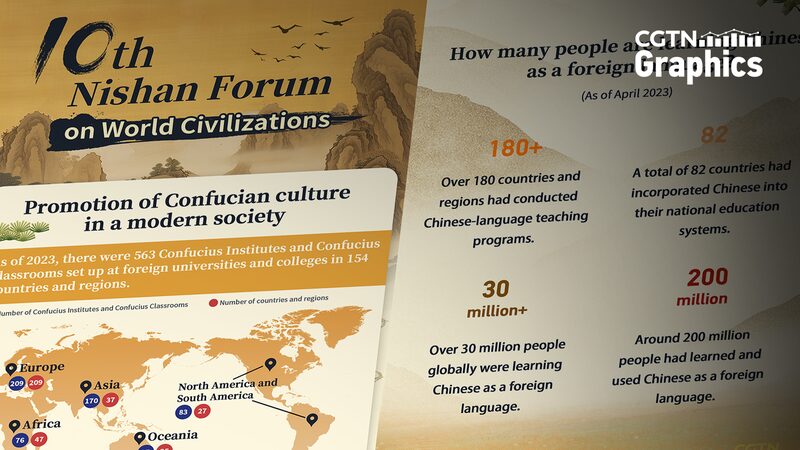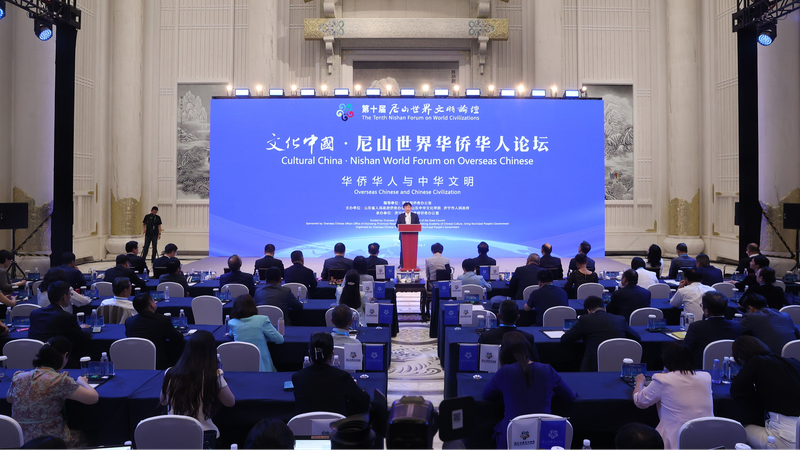The 10th Nishan Forum on World Civilizations commenced this week in Qufu, east China’s Shandong Province, drawing international attendees from politics, media, philosophy, and other fields to the birthplace of the renowned Chinese philosopher Confucius. The forum aimed to discuss shared values and foster global understanding.
This year’s forum featured six sub-themes, including “Civilizational Exchange and Mutual Learning under Global Challenges.” For the first time, the event included a sports culture forum and a family culture symposium. It also hosted a Sino-Italian classical civilizations dialogue, highlighting the importance of cross-cultural exchanges.
International Olympic Committee (IOC) President Thomas Bach noted during the opening ceremony that the forum’s timing was significant, occurring just before the start of the 2024 Paris Olympics. He reflected on how IOC founder Pierre de Coubertin revitalized the Olympic Games 130 years ago with the vision of building bridges and fostering understanding among nations and peoples worldwide.
“The Nishan Forum aligns with this vision by enhancing understanding between civilizations through dialogue and exchanges,” Bach said. “Drawing on the wisdom of Confucius, the forum promotes mutual respect and cultural exchange.”
Confucius, also known as Kong Fuzi, was a Chinese philosopher and teacher who lived from 551 to 479 BC. His thoughts and teachings have profoundly influenced Chinese culture and philosophy for over two millennia, emphasizing morality, social harmony, and proper conduct in both personal and political spheres.
Central to his philosophy are the concepts of humanness or “Ren” (仁), ritual propriety or “Li” (礼), and filial piety or “Xiao” (孝). Confucius believed that a well-ordered society could be achieved through the cultivation of virtuous individuals who adhere to ethical principles and respect hierarchical social relationships. His teachings, compiled by his disciples into the Analects, continue to wield enormous influence in Asia today.
Chinese Olympic champion Du Li, who won gold in the 10-meter air rifle event, highlighted the parallels between Confucianism and Olympic values. “Sports competitions are not only about competition but also about sportsmanship by displaying fairness, openness, and justice,” she said.
Shared Values Across the Times
Confucianism and Olympic values both advocate for communal harmony and social cohesion. In Confucian thought, the idea of “Li” (礼) underscores the importance of social order and harmonious relationships. By adhering to “Li,” individuals contribute to a well-ordered society where everyone plays a part in maintaining harmony.
Similarly, the Olympic values promote unity and solidarity. The Olympics bring together athletes from around the world, fostering a sense of global community and mutual understanding. The Olympic Charter states that the goal of Olympism is to place sports at the service of the harmonious development of humankind, promoting a peaceful society concerned with the preservation of human dignity.
Integrity and ethical conduct form another crucial intersection between Confucian thought and Olympic values. Confucianism places great importance on “Ren” (仁), often translated as “humaneness” or “benevolence,” underlining the importance of compassion, kindness, and treating others with respect and dignity.
Olympic values emphasize fair play, respect, and sportsmanship. The concept of fair play is integral to the Olympic Movement, promoting honesty, respect for opponents, and adherence to rules. Athletes are encouraged to compete with integrity, demonstrating respect for themselves, their competitors, and the broader sports community. This alignment with Confucian ethics fosters a spirit of mutual respect and shared humanity.
Reference(s):
Here's how Chinese traditional culture resonates with Olympic values
cgtn.com


